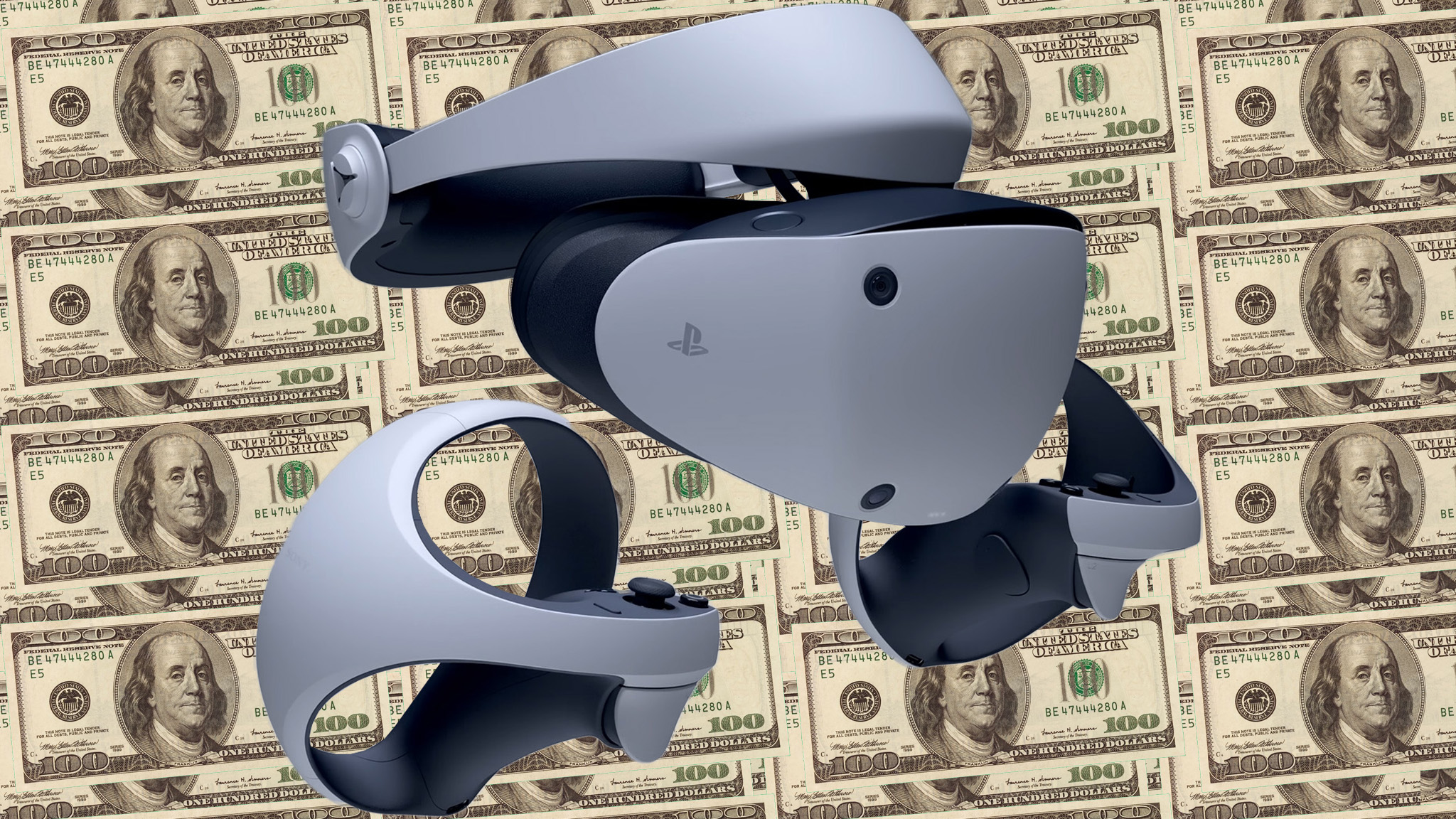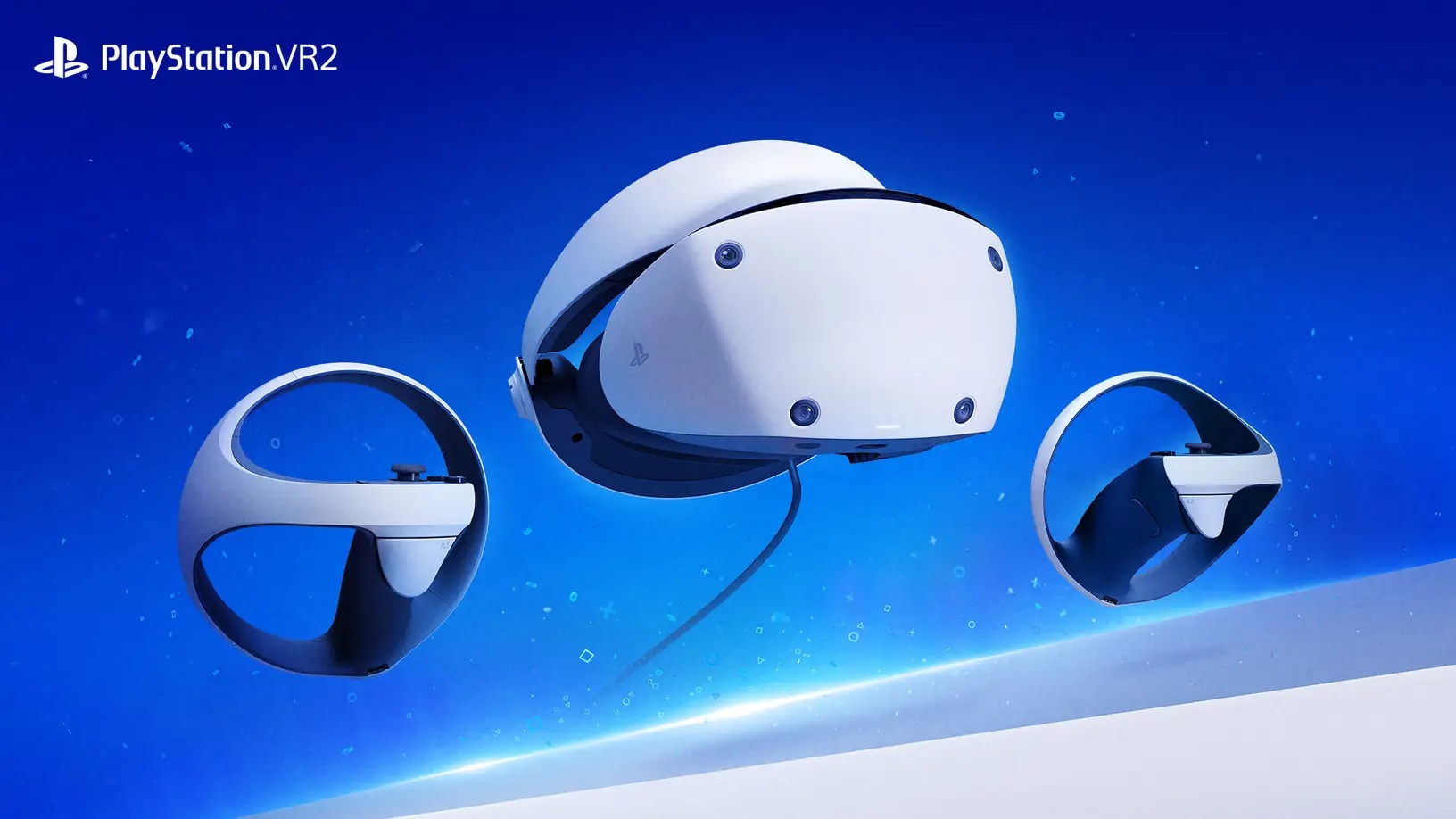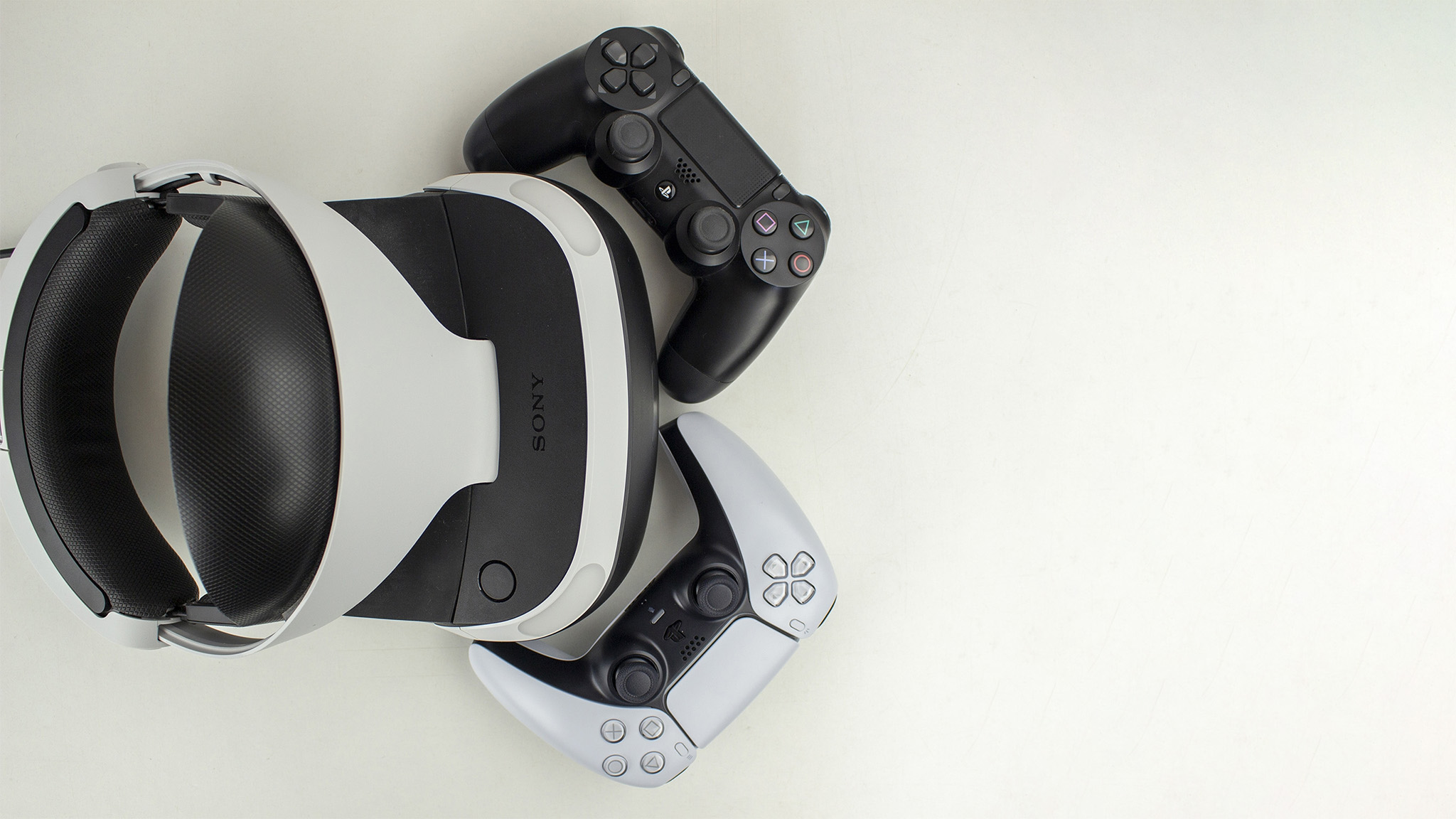The PS VR2 is too darn expensive
Here's why that's a problem.

Quality products aren't cheap, but that doesn't mean affordable products can't be quality. Case in point, look at the Meta Quest 2, which has retailed from $300-500 for the last two years of the product's existence and doesn't require a console or PC of any kind to play great VR games.
So imagine the surprise of many when Sony finally unveiled the PS VR2's price. It's a whopping $550 for the headset and controllers, making it $50 more expensive than the disc model PS5 (and $150 more expensive than the digital-only PS5). Considering this is a console add-on, it's pretty ludicrous that Sony thinks it can charge more than the console itself. After all, the PS5 console is a requirement just to use a PS VR2.
That means you'll need to pay at least $950 to use a PS VR2 if you don't already own a PS5. While Sony's pricing structure is sure to limit the headset's overall number of units sold over its lifetime, its strategy might pay off since it puts them in a category all their own. Still, if Sony's goal is to sell more headsets than the original PSVR, it might find such a reality particularly difficult to achieve in this day in age.
Value, not price

There's little doubt that Sony will attempt to market the PS VR2 as the best-value VR headset around. Truth be told, that's really not a lie at all if we're coming at it from a technology perspective. At $550, it's the only headset with:
- Eye-tracking
- A 4K HDR display
- Haptics in the headset
- Controllers with finger detection
- Controllers with adaptive triggers
- Controllers with advanced haptics
- A company behind it with several AAA games studios
The only VR headset that offers this many features is one that costs three times as much (the Meta Quest Pro).
To put it in perspective, the only headset that offers almost all these things is the Meta Quest Pro which costs $1,500. Even then, the Quest Pro's display isn't "real" HDR and its controllers don't have adaptive triggers. At this point, buying a PS VR2 seems like a deal, even if you also have to purchase a PS5 in order to get going.
But that ignores many of the changes the market has gone through since the release of the original PSVR on the PS4 and the fact that Sony expects to sell 2 million units in the first year, alone. For reference, that's 1/3 the number of PSVR headsets sold to date since 2016.
Anshel Sag, a senior analyst at Moor Insights & Strategy, agrees that the price is likely going to be a difficult obstacle for Sony to get over. "I do agree that the price will make it an uphill challenge, especially considering standalone prices and low volumes will scare away likely game developers that aren't getting paid by Sony to build for PSVR."
Be an expert in 5 minutes
Get the latest news from Android Central, your trusted companion in the world of Android
I've seen some folks on social media point out that, when factoring in inflation, the PS VR2 is actually about $50 less expensive than the PSVR was when it originally launched in 2016. While that's great for a perceived market value relative to inflationary cost adjustment, it doesn't take into account the fact that standalone VR headsets didn't really exist in 2016 when the original PSVR launched.
That last point is really the crux of the issue and what makes me feel like the PS VR2 is, ultimately, overpriced for what you get.
Looking back at the past (to see the future)

The original PSVR was a great value because there was no real competition at its price point.
When the original PSVR launched in 2016, it cost $399. At the time, that was an unbelievable price even though it cost the same as the PS4 console itself, which also launched at $399. Why so? Because there was no competition at all at this price point.
At the time, PC VR was just getting started and there were few options available. The Oculus Rift CV1 shipped for $599 with a lame Xbox controller and could only be played sitting in a chair while the far more advanced HTC Vive sold for $799 and had better tracking and controllers than either the Rift or the PSVR.
But both of those headsets required a powerful gaming rig which, at the time, likely would have cost you an additional $1,500. Meanwhile, Sony was offering a pretty comparable solution for just $800 out the door.
In 2022, Meta sells its Quest 2 headset for $399 which, as I covered before, requires nothing else to run the best VR games you'll find anywhere. And that's where my final point comes in: games.
Oculus Studios has grown by leaps and bounds in the past two years. Meta now owns nine development houses (with a tenth pending regulatory approval) that solely develop VR titles. Meanwhile, Sony has both acquired several development teams and simultaneously closed some, sending mixed signals about its intentions for VR as a mainstream gaming medium for PlayStation's future.
Without higher attach rates, developers won't want to make games for the PS VR2 at the same rate as the Quest 2.
Sag seems to agree with this, as well, saying "I think Sony's studio's will have to make amazing PSVR titles to help improve the value proposition otherwise, I don't see many independent developers seeing much of an ROI if the attach rate will be even lower than the original PSVR, which I think most of us expect will happen at $549."
Case in point, Sony announced 11 new PS VR2 games on the same day it announced the headset price. That sounds great, especially since most of these are launch window games, but it doesn't take into account that nine of these eleven titles are either already on the Quest 2 or also coming out for the Quest 2.
Meta has made plenty of mistakes along the path of growing its Quest line of headsets but, ultimately, developers have benefitted from the company's bullish approach. Last year, we saw several developers begin to make it big with millions of dollars in revenue and, alongside the launch of the Meta Quest Pro a few weeks ago, Meta announced that over 400 apps in the Quest store have made over $1 million in revenue.
That's a whopping 1/3 of all apps in the Quest store making developers a literal shedload of money, and the most successful developers have made tens of millions more than that. Meanwhile, the PSVR ecosystem has languished over the years and Sony hasn't exactly been cheerful when it comes to touting developer success on its platform.
My fear is that the PS VR2's high price will only further cement Sony's headsets as niche add-ons like the Wii Balance Board, accessories that you use a few times and then stick in a closet after a year or two.

